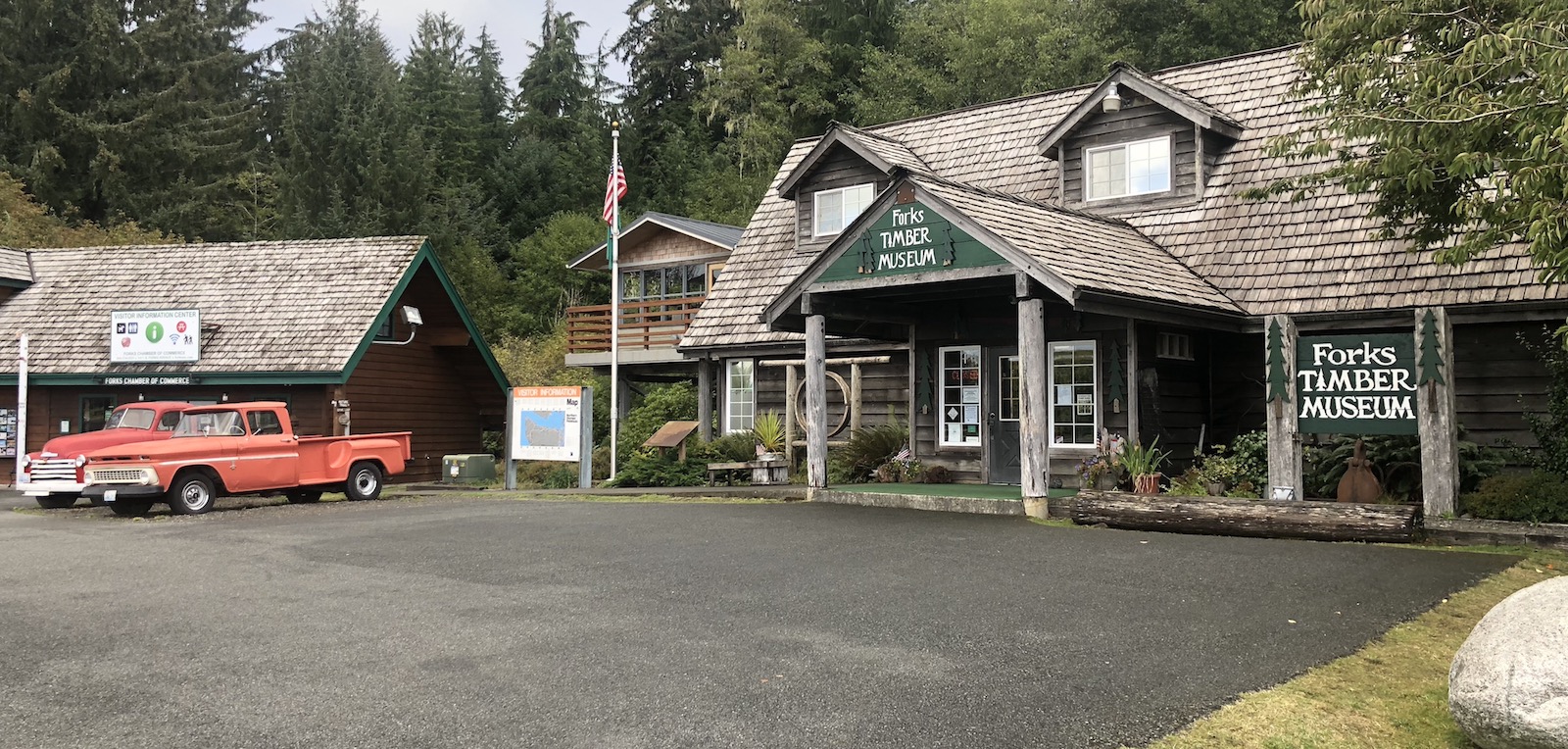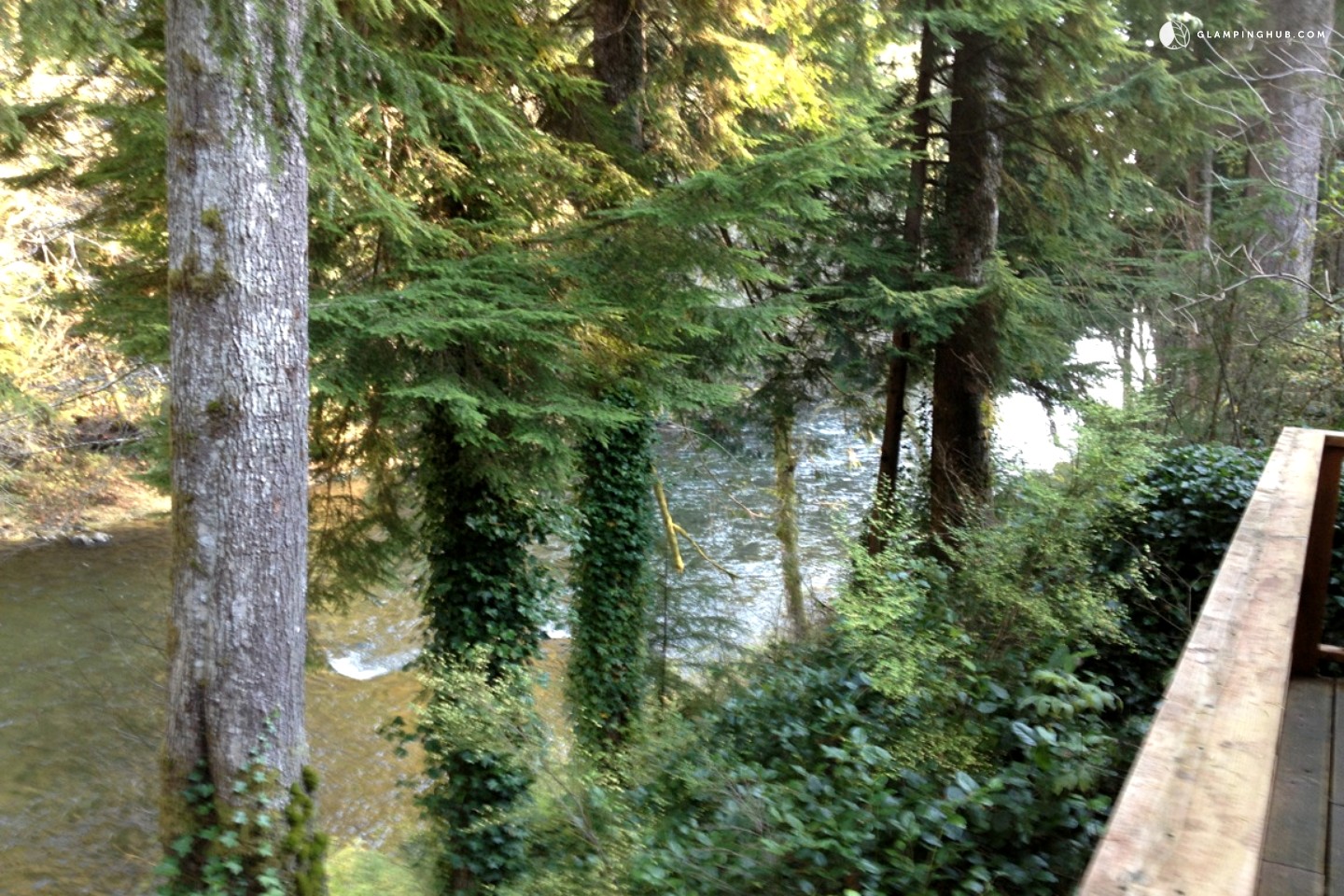
Isolation soon creeped into the area due to the 1907 national recession. The Olympic National Park took up the remaining parts of the reserve (it first became a monument in 1909).

The Olympic Forest Reserve was trimmed by 623,000 acres but it contained three-fourths of all timber by volume. President Grover Cleveland placed individual claiming of timber volume off-limits in the Olympic Peninsula around this time which proved monumental for the area's future. In 1916, Merrill & Ring began to log in the Pysht River drainage northwest of the area. Booming logging camps were set up by timber baron Michael Earles in the early 1900s which attracted many workers to the area. Timber was cleared by settlers and small-time loggers in the late 1800s. In the early 1900s, hop growing declined and the Forks Cooperative Creamery was established which operated for 70 years. The Mora post moved to Forks in the early 1890s which consisted of a general store, hardware store, and a hotel. In 1927 a single car-sized road opened from Lake Crescent to Forks and the Olympic Loop Highway ( U.S. Eventually canoes and ferries were used to help alleviate these issues. It was not until narrow roads were built in the 1880s and 1890s that the situation improved slightly. Due to these problems, hops would regularly rot awaiting transport. The small supply boat that was provided in the summers was not large enough for cargo either. It was difficult to receive and sell products in Forks in its early days since the nearest market was in Port Townsend (over 55 miles away). The name 'Forks' was due to the prairie's location as a fork in the vicinity of three rivers.

Since another Washington settlement already was named 'Ford's Prairie' the name 'Forks' was chosen as the name. In 1884 a post office opened in Nelson's cabin. Ford set up the first dairy herd in the settlement in 1879. In January 1878, a mile east of Forks, Luther and Esther Ford arrived and laid claim to the 160-acre homestead (at the time there was already a few trappers living in the area). In the 1860s, men from Dungeness unsuccessfully attempted to convince the territorial legislature to create Quillehuyte County out of Clallam and Jefferson counties's western ends. Early settlement Įarly settlers to Forks came via the rivers and trails from the Pacific and the Strait of Juan de Fuca due to the lack of overland options. The phrase "prairie upstream" from Quileute language was translated and became the name Forks Prairie.

Forks is 12 miles from tribal burning areas that area tribes used to regenerate young ferns. That same year the village was burnt down by settler Daniel Pullen. In 1889 a reservation was created near Forks the same year that Washington became a state. History Territory of the Quileute Native Americans įorks was once inhabited by the Quileute Native American tribe, before they ceded their territory. It is also supported by visitors to Olympic National Park. Forks is a popular destination for sport fishers who fish for salmon and rainbow trout in nearby rivers. With recent declines in the timber industry, Forks has relied on the nearby Clallam Bay Corrections Center and Olympic Corrections Center as sources of jobs.
#Fork washington series
More recently it has drawn tourism related to the novel series Twilight and films of the same name, set in Forks. It is named after the forks in the nearby Quillayute, Bogachiel, Calawah, and Sol Duc rivers.įor many years, the city's economy was fueled by the local timber industry. The population was 3,335 at the 2020 census.

Forks, also previously known as the unincorporated town of Quillayute, is a city in southwest Clallam County, Washington, United States.


 0 kommentar(er)
0 kommentar(er)
